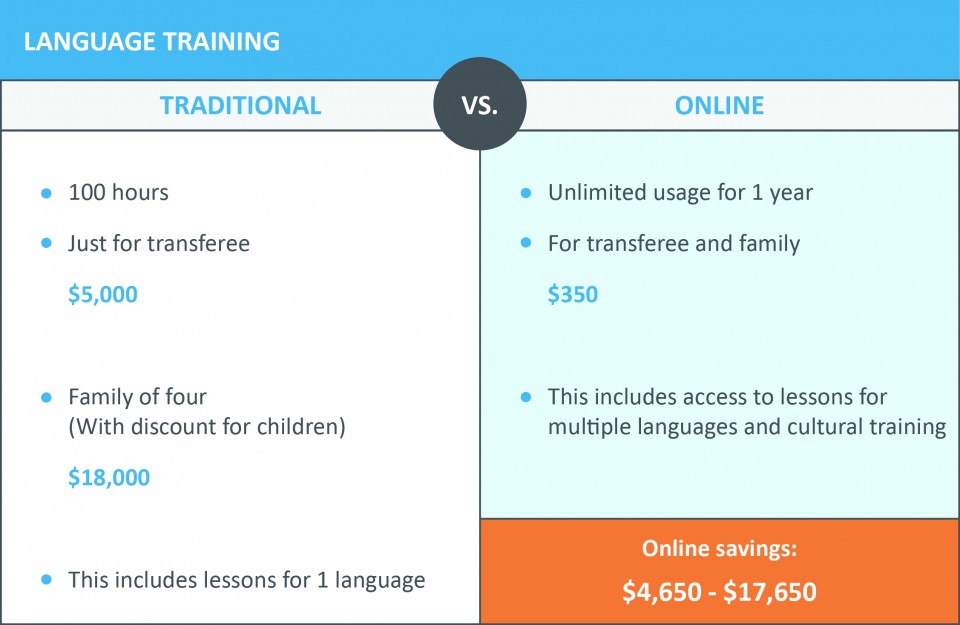Department heads all over the globe are constantly asked to identify cost-saving opportunities within their departments. Human resources, employee mobility, talent acquisition, and procurement are no exceptions. As you scrutinize your budget, try utilizing these three steps to help better manage and ultimately reduce your relocation expenses:
Cost Estimates
Managing mobility costs starts with understanding what those expenses are. First estimate what costs should be involved with your vision of a successful mobility program. A cost estimate will provide you with a clear picture of the potential costs of individual relocation assignments. You can then use these cost estimates to correctly establish a budget prior to initiating any relocations.
One effective way to determine your cost estimates is by utilizing cost estimate technology. There are many software programs that by using the latest upgrades will help you:
- Save time
- Reduce human error
- Ensure compliance
Policy Reviews
By reviewing your relocation policies, either internally or with an outside relocation management company (RMC), you will be able to identify cost-saving opportunities and eliminate expensive exceptions. When reviewing your mobility management policies, you should:
- Do so in conjunction with cost
- Benchmark against other companies within your industry
- Leverage technology for key services (i.e. Virtual destination tours, online school reports, etc.)
Example:


Tracking and Reporting
Lastly, you want to ensure that you are continuously tracking all expenses and reporting any overages or savings. Get a detailed account of how your cost estimates match up with your actual spending. Then the whole process repeats itself. Once you have your data:
- Take action – Make any necessary adjustments to your budget, policy, or both
- Review – Go over the detailed reports to identify more cost-saving opportunities
- Incorporate technology – Save time and money by offering key services online
Global Mobility Solutions (GMS) is an award-winning RMC and, since 1987, has been helping companies save time and money with regard to their corporate relocations. As a courtesy service, GMS will review your current relocation policies and provide expert feedback to ensure that your policies are competitive within your industry and to identify any cost-saving opportunities, so you can focus on managing mobility costs.




